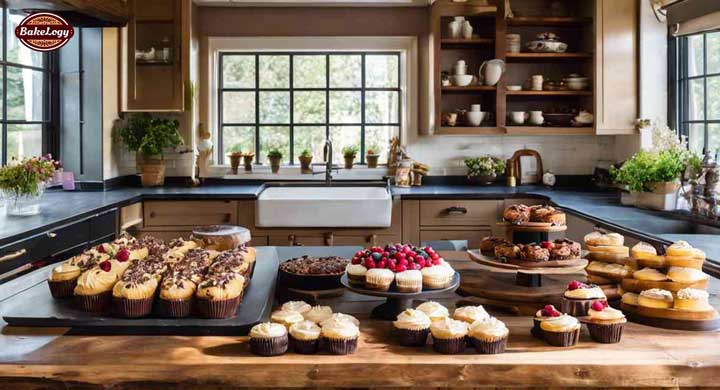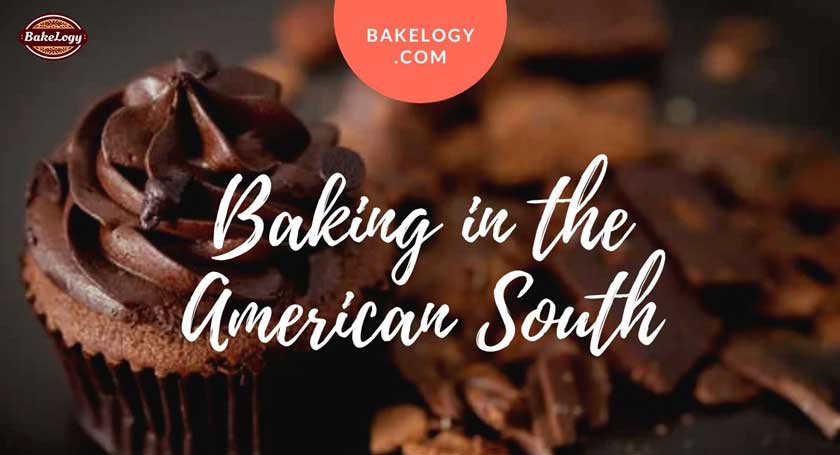Whether you’re a beginner or a seasoned pro, having the right tools in your kitchen is essential for successful baking. These tools not only simplify the process but also ensure your baked goods turn out perfectly every time. Here’s a list of the baking tools you simply can’t live without and why they’re indispensable.
1. Measuring Cups and Spoons
Accurate measurements are the foundation of baking. Measuring cups and spoons help you get the exact quantities of ingredients, whether it’s a tablespoon of baking powder or a cup of flour. Look for durable sets with easy-to-read markings.
2. Mixing Bowls
Mixing bowls are essential for combining ingredients. Opt for a set that includes various sizes to accommodate everything from whisking eggs to mixing dough. Stainless steel, glass, or plastic options are available, depending on your preference.
3. Whisk
A whisk is perfect for blending ingredients smoothly and incorporating air into mixtures like whipped cream or meringue. Its versatility makes it a must-have in every baker’s arsenal.
4. Rolling Pin
For rolling out dough for pies, cookies, or pastries, a rolling pin is indispensable. Wooden rolling pins are a classic choice, but silicone or marble options can also work well.
5. Spatula
Spatulas are incredibly versatile. Use them for scraping batter, folding ingredients, or spreading frosting. Silicone spatulas are heat-resistant and ideal for both mixing and cooking.
6. Pastry Brush
A pastry brush comes in handy for glazing pastries, applying egg washes, or spreading melted butter. Silicone brushes are easy to clean, while traditional bristle brushes offer precision.
7. Baking Pans
From round cake pans to loaf pans, having the right baking pans ensures your creations bake evenly. Start with versatile options like a muffin tin, a square pan, and a cookie sheet to cover most recipes.
8. Cooling Racks
Once your baked goods come out of the oven, cooling racks are essential for allowing air to circulate, preventing sogginess. They’re particularly useful for cookies, cakes, and breads.
9. Stand or Hand Mixer
Mixers save time and effort, especially for tasks like kneading dough or whipping cream. A stand mixer is ideal for heavy-duty jobs, while a hand mixer works well for smaller tasks.
10. Parchment Paper
Parchment paper prevents sticking and makes cleanup a breeze. Use it to line baking sheets, roll out sticky dough, or even pipe delicate shapes like macarons.
11. Dough Scraper
A dough scraper is perfect for cutting dough, cleaning your work surface, or transferring chopped ingredients. It’s a simple tool with a multitude of uses.
12. Kitchen Scale
For precision baking, a kitchen scale is invaluable. It allows you to measure ingredients by weight, ensuring accuracy and consistency, especially in recipes that require precision.
13. Oven Thermometer
Not all ovens are created equal. An oven thermometer ensures your oven is at the correct temperature, which is crucial for baking success.
14. Piping Bags and Tips
For decorating cakes, cupcakes, or cookies, piping bags and tips let you create intricate designs. Start with a basic set to explore your creativity.
15. Timer
Baking is all about timing. A good timer helps you avoid over- or under-baking, ensuring your creations are cooked to perfection.
Why These Tools Matter
Having the right tools transforms baking from a challenge into a joy. These essentials are not just about convenience; they’re about achieving consistent, professional results. Investing in quality tools ensures you’re set up for success in every recipe you tackle.
Final Thoughts
Stocking your kitchen with these indispensable baking tools is a step toward creating delicious and beautiful baked goods. Start with the basics and expand your collection as your baking journey progresses. With the right tools, the possibilities are endless.
Let’s get baking!
FAQs
Q1: Why are measuring cups and spoons so important in baking?
Precise measurements are crucial in baking because it’s a science. Too much or too little of an ingredient can affect the texture, flavor, and appearance of your baked goods.
Q2: What type of mixing bowls should I buy?
It depends on your preference and needs. Stainless steel bowls are durable and lightweight, glass bowls are great for seeing the contents, and plastic bowls are lightweight and affordable. Having a set with multiple sizes is ideal.
Q3: Can I bake without a rolling pin?
Yes, in a pinch, you can use a clean bottle or even your hands to roll out dough. However, a rolling pin ensures even thickness, which is important for consistent baking.
Q4: Are silicone spatulas better than wooden or metal ones?
Silicone spatulas are preferred because they’re heat-resistant, flexible, and easy to clean. They’re versatile and work well for both mixing and cooking.
Q5: What is the purpose of a pastry brush?
A pastry brush is used for tasks like glazing pastries, applying egg washes, or spreading butter or oil. Silicone brushes are easier to clean, while bristle brushes offer more precision.
Q6: Do I really need an oven thermometer?
Yes, an oven thermometer ensures your oven is at the correct temperature, which is crucial for successful baking. Oven dials are not always accurate.
Q7: What size baking pans should I start with?
Start with versatile options like an 8-inch or 9-inch round cake pan, a muffin tin, a 9×13-inch rectangular pan, and a cookie sheet. These cover most basic recipes.
Q8: Can I use parchment paper instead of greasing a pan?
Yes, parchment paper is an excellent alternative to greasing. It prevents sticking, ensures even baking, and makes cleanup easier.
Q9: Are hand mixers as good as stand mixers?
Hand mixers are versatile for smaller tasks like whipping cream or mixing batter. However, a stand mixer is more powerful and better suited for heavy-duty tasks like kneading dough.
Q10: What’s the benefit of a kitchen scale over measuring cups?
A kitchen scale provides more accurate measurements, especially for dry ingredients like flour, which can vary when measured by volume. It ensures consistency in baking.
Q11: How do I prevent cookies from sticking to the baking sheet?
Use parchment paper, a silicone baking mat, or lightly grease the baking sheet to prevent sticking.
Q12: Why do I need a cooling rack?
A cooling rack allows air to circulate around your baked goods, preventing sogginess and ensuring they cool evenly.
Q13: Can I make decorative designs without piping bags and tips?
Yes, you can use zip-top bags with a corner snipped off as a substitute for piping bags. However, piping bags and tips give you more control and precision for intricate designs.
Q14: How can I ensure my dough doesn’t stick when rolling it out?
Lightly flour your work surface, rolling pin, and dough. Alternatively, roll the dough between two sheets of parchment paper.
Q15: Are dough scrapers necessary for baking?
Dough scrapers are highly versatile and make tasks like cutting dough, cleaning your work surface, and transferring ingredients easier. They’re simple yet incredibly useful.



